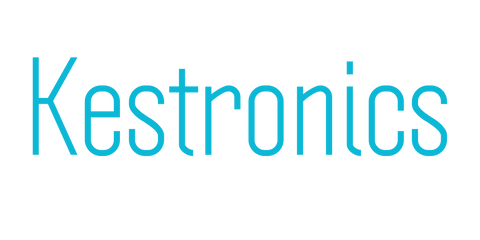In today's fast-paced business environment, mobile computers have become indispensable tools for organisations seeking to enhance productivity, streamline operations, and remain competitive. These portable devices combine computing capabilities with mobility, enabling workers to perform tasks efficiently regardless of location. This article explores the advantages and disadvantages of mobile computers for businesses considering implementation of these technologies.
What Are Mobile Computers?
Mobile computers are handheld electronic devices designed for portability whilst delivering essential computing functions. Unlike traditional desktop computers, these devices can be carried and operated whilst walking or standing, making them ideal for dynamic work environments. Common examples include:
- Handheld mobile computers
- Rugged tablets
- Industrial PDAs
- Wearable computers
- RFID scanners and readers
- Enterprise digital assistants (EDAs)
These purpose-built devices often include integrated barcode scanners, RFID capabilities, robust wireless connectivity, and specialised software tailored to specific industries.
Advantages of Mobile Computers
1. Enhanced Operational Efficiency
Mobile computers enable workers to complete tasks on the spot without returning to a central workstation. This real-time processing capability eliminates redundant steps and significantly reduces the time required to complete workflows. For instance, warehouse staff can scan inventory, update records, and locate items simultaneously whilst moving through the facility.
2. Improved Accuracy
By incorporating barcode scanning technology, mobile computers dramatically reduce human error in data entry processes. Manual data entry typically has an error rate of 1 in 300 characters, whilst barcode scanning boasts an error rate of just 1 in 3 million scans. This improvement in accuracy leads to fewer inventory discrepancies, more reliable record-keeping, and ultimately, better customer service.
3. Durability and Longevity
Purpose-built mobile computers are designed to withstand harsh working environments. Unlike consumer-grade smartphones, rugged mobile computers often feature:
- IP65 or higher dust and water resistance ratings
- Drop resistance from heights of 1.5-1.8 metres onto concrete
- Operating temperature ranges from -20°C to 50°C
- Reinforced screens and housings
- Extended battery life for full-shift operation
These characteristics ensure reliability in challenging settings such as warehouses, manufacturing plants, and outdoor logistics operations.
4. Real-Time Data Access and Sharing
Mobile computers with wireless connectivity enable instant access to centralised databases and immediate data transmission. This real-time capability allows for:
- Up-to-the-minute inventory visibility
- Immediate order processing
- Timely communication between team members
- Rapid response to changing conditions
- Informed decision-making based on current data
5. Versatility and Integration
Modern mobile computers offer extensive integration capabilities with enterprise systems such as:
- Warehouse Management Systems (WMS)
- Enterprise Resource Planning (ERP) platforms
- Customer Relationship Management (CRM) software
- Supply Chain Management solutions
- Point of Sale (POS) systems
This seamless integration ensures consistent data across all business functions, creating a unified operational ecosystem.
6. Return on Investment
Despite higher initial costs compared to consumer devices, purpose-built mobile computers typically deliver superior long-term ROI through:
- Reduced maintenance and replacement frequency
- Decreased downtime and operational disruptions
- Enhanced productivity leading to labour cost savings
- Fewer errors resulting in less waste and rework
- Improved customer satisfaction driving repeat business
7. Enhanced Security Features
Enterprise-grade mobile computers often incorporate advanced security measures including:
- Biometric authentication
- Role-based access controls
- Encrypted data transmission
- Remote wipe capabilities
- Secure boot processes
- Advanced mobile device management options
These features help protect sensitive business and customer information in compliance with regulations such as GDPR.

Disadvantages of Mobile Computers
1. Initial Investment Costs
Enterprise-grade mobile computers typically cost between £800 and £2,500 per unit, representing a significant capital expenditure. Additional costs include supporting infrastructure, software licensing, implementation services, and staff training. For small to medium enterprises with limited capital, this initial outlay can be challenging.
2. Potential Learning Curve
Implementing mobile computers requires staff to adapt to new technologies and workflows. This adjustment period may temporarily reduce productivity and create resistance among employees accustomed to existing processes. Organisations should factor this transition time into implementation plans.
3. Technical Support and Maintenance
Mobile computers require ongoing technical support including regular software updates, battery replacement, hardware repairs, and network maintenance. Companies must either develop in-house expertise or establish service agreements with vendors.
4. Battery Life Limitations
Despite improvements in battery technology, power management remains a concern. Devices may deplete charge during long shifts, batteries degrade over time, and performance can decrease in extreme temperatures. Strategic placement of charging stations or hot-swappable batteries can help mitigate these challenges.
5. Software Compatibility Challenges
Legacy enterprise systems may not immediately integrate with new mobile computing platforms, potentially requiring custom development work, data synchronisation solutions, and workflow redesign.
6. Device Management Complexity
Managing a fleet of mobile computers introduces logistical challenges including inventory tracking, software update distribution, security policy enforcement, and end-of-life replacement planning. Mobile Device Management (MDM) solutions can help but represent an additional system to maintain.
7. Potential for Distraction
Without proper policies and controls, mobile computers may become sources of workplace distraction through unauthorised use or by diverting attention from physical surroundings, creating potential safety concerns.
Industry-Specific Applications
Retail
Mobile computers transform retail operations through:
- Mobile point-of-sale capabilities
- In-aisle inventory checking
- Price verification
- Clienteling applications
- Click-and-collect order fulfilment
Warehousing and Logistics
In warehousing environments, mobile computers enable:
- Efficient picking and packing processes
- Accurate shipping and receiving
- Inventory cycle counting
- Asset tracking
- Route optimisation for delivery personnel
Manufacturing
Manufacturers leverage mobile computing for:
- Production line quality control
- Work-in-progress tracking
- Materials management
- Equipment maintenance
- Compliance documentation
Healthcare
Healthcare providers utilise mobile computers for:
- Patient identification and verification
- Medication administration
- Specimen collection tracking
- Mobile medical records access
- Equipment and asset management
Field Service
Mobile technologies empower field service technicians through:
- Access to service histories and documentation
- Parts inventory management
- Work order processing
- Time and attendance tracking
- Remote expert consultation capabilities
Considerations When Selecting Mobile Computers
When evaluating mobile computing solutions, organisations should consider:
- Environmental Factors: Assess the physical conditions where devices will operate, including temperature extremes, moisture, dust, and drop hazards.
- Ergonomics: Evaluate device weight, grip comfort, screen visibility, and keyboard/input design for all-day use.
- Battery Performance: Determine if battery capacity meets shift duration requirements and whether hot-swap capabilities are necessary.
- Connectivity Requirements: Identify wireless network needs, including Wi-Fi, cellular, Bluetooth, and NFC capabilities.
- Data Capture Needs: Specify required scanning capabilities, such as 1D/2D barcodes, RFID, image capture, or signature collection.
- Processing Power and Memory: Match device specifications to application requirements to ensure smooth performance.
- Operating System: Consider long-term support, security updates, and compatibility with existing systems.
- Total Cost of Ownership: Look beyond purchase price to include maintenance, support, and expected device lifespan.
Conclusion
Mobile computers offer transformative potential for businesses across numerous industries, delivering significant improvements in efficiency, accuracy, and information access. While challenges exist regarding initial investment and implementation complexity, the long-term benefits typically outweigh these considerations for organisations that thoughtfully deploy these technologies.
For businesses evaluating mobile computing solutions, a thorough assessment of operational requirements and environmental conditions will help identify the most appropriate devices. By selecting purpose-built enterprise mobile computers rather than consumer-grade alternatives, organisations can maximise return on investment and build a foundation for future operational excellence.

